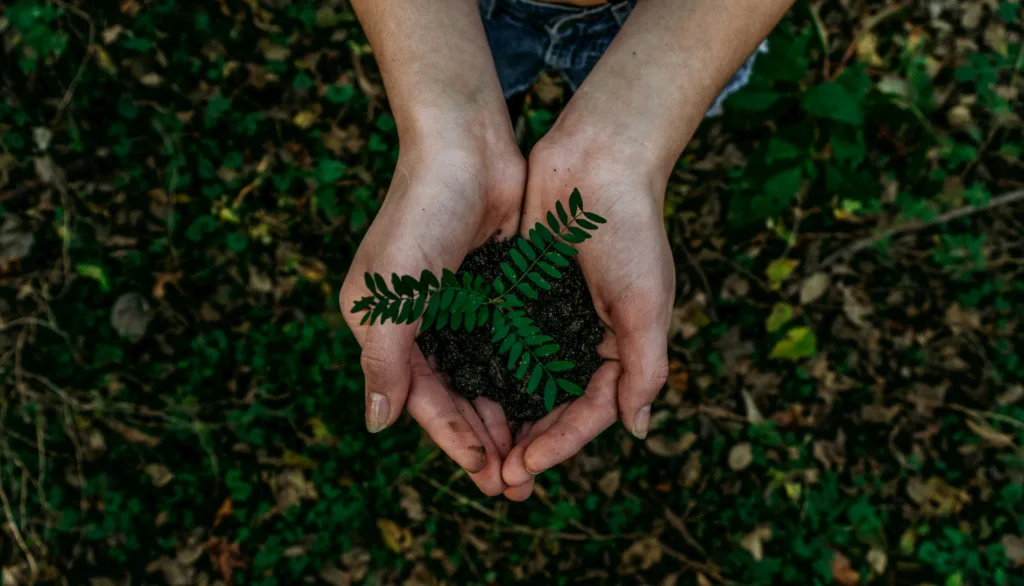
I’ll be honest — for a long time, I thought sustainable living was for people who owned electric cars, composted religiously, and somehow managed to make their own almond milk from scratch. That definitely wasn’t me.
But a few years ago, I started noticing how much stuff I threw away — plastic bottles, food, clothes I barely wore. It felt wrong. So I decided to start small. No pressure, no perfection, just curiosity. And that’s how my slow (and sometimes messy) journey toward a more sustainable life began.
What Sustainable Living Really Means
Here’s how I see it: sustainable living isn’t about giving up everything you love. It’s about living in a way that doesn’t drain the planet — or yourself.
It’s making little choices that add up: using less plastic, wasting less food, choosing things that last, supporting brands that actually care. Nothing dramatic. Just being a bit more thoughtful about what we buy, how we use it, and where it ends up.
Small Changes at Home
The easiest place to start was home.
I swapped all my old light bulbs for LEDs — honestly, I just wanted to stop replacing them so often. I unplug chargers when I’m not using them. I line-dry my clothes when it’s warm outside, and besides saving energy, everything smells like sunshine.
I also started collecting rainwater for my plants, and it feels oddly satisfying — like nature’s version of free delivery.
What I learned fast is that tiny changes make a real difference. My electricity bill went down, I use less water, and somehow I just feel lighter knowing I’m wasting less.
Food: The Hardest (But Most Rewarding) Part
Food was where I used to waste the most. Half a cucumber forgotten in the fridge? Classic. Globally, about 19% of food produced (roughly 1.05 billion tonnes in 2022) was wasted at the consumer, retail, and food service levels. Now, I plan meals for the week and freeze leftovers instead of letting them go bad.
I also started buying more local produce — the difference in taste alone convinced me. And once I learned that global food waste causes around 8–10% of greenhouse gas emissions, it hit home how much power we have just by managing our kitchens better.
These days, I don’t label myself vegetarian, but I’ve cut down on meat. Even one or two veggie days a week really do make a difference — for the planet and for my wallet.
Getting Around, Smarter
I used to drive everywhere. Now I walk more, especially for short errands, or I hop on my bike. I still drive when I need to, but I try to plan routes so I’m not zigzagging across town.
It’s not about guilt — it’s about making it make sense. Plus, walking clears my head in a way sitting in traffic never will.
Learning to Reuse and Rethink
Here’s one thing that surprised me: once you start living sustainably, you see everything differently.
I look at jars and think, “This could hold coffee beans.” Old T-shirts become cleaning rags. A broken chair? Maybe it can be fixed. Okay, sometimes it can’t — but it’s worth a try.
Recycling is great, but I’ve learned it’s even better to reuse, repair, and repurpose. It’s like giving things a second life — and it’s oddly satisfying.
The Mindset Shift
Somewhere along the way, “eco-friendly” stopped feeling like a trend and started feeling like a mindset.
I don’t stress about doing everything right. Some weeks I’m great about composting; other weeks, I forget. But that’s okay. The point is to care enough to try again.
And what’s beautiful is how connected it makes you feel — to your surroundings, your community, and the bigger picture. I’ve started sharing tips with friends, swapping clothes, even organizing a local clean-up once. Turns out, sustainability isn’t lonely at all — it’s communal.
The Bigger Picture
According to climate experts at the IPCC, if enough of us adopt simple sustainable habits, we could collectively cut global emissions by up to 70% by 2050.
That’s wild — and kind of inspiring, right? A reminder that our choices, even the small ones, really do matter.
Doing What You Can (and Being Proud of It)
So no, I’m not living zero-waste or off the grid. I still buy things I probably don’t need sometimes. But every day, I try to do a little better — and that’s enough.
Because sustainable living isn’t about being perfect. It’s about caring — about your planet, your community, your future. And when you live that way, life feels a little calmer, a little kinder, and a lot more meaningful.
Explore other articles:
How Seniors Are Learning Tech: A Look Inside New Classes and Courses